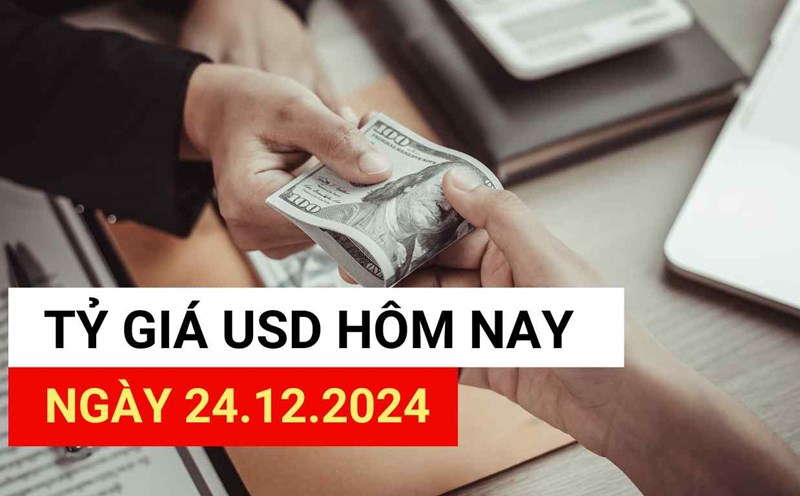USD exchange rate at bank
Central exchange rate: State Bank announced at 24,308 VND/USD, slightly down 7 VND compared to December 24.
At Vietcombank: 25,193 - 25,523 VND/USD (buy - sell).
At BIDV: 25,228 - 25,523 VND/USD.
Euro and other currencies exchange rates
Euro:
At Vietcombank: 25,792 VND (buy) - 27,206 VND (sell).
Continued decline from yesterday's price.
At Vietcombank: 156.18 - 165.26 VND.
At BIDV: 157.3 - 165.39 VND.
The Japanese yen remains hovering around a five-month low, near levels that could trigger intervention from Tokyo.
Trend analysis and investment suggestions
The dollar's strength was supported by the prospect of prolonged high interest rates in the US, which pushed bond yields up and boosted the greenback's position.
Fed interest rates are forecast to remain high through 2025, with markets only expecting a cut of around 35 basis points next year, making the US dollar more attractive against other currencies.
Importing businesses should consider buying USD early to avoid the risk of higher prices in the future.
Exporters should continue to lock in foreign currencies as the USD is at a high level.
As for the Japanese Yen, the BoJ's monetary policy continues to maintain an easing stance, increasing downward pressure on the Yen.
The carry trade (borrowing Yen to invest in assets with higher interest rates) makes the Japanese Yen weaker, especially when the US-Japan interest rate gap is widening.
Investors need to be wary of possible intervention from the Japanese government, which could cause major volatility in the short term.
The euro is currently hovering around $1.0393, near a two-year low set in November. The British pound is also holding around $1.2532, its lowest in a month.
The ECB was cautious in adjusting interest rates, putting the Euro and GBP under pressure from the strong USD.
Investors should closely monitor signals from the ECB and the Fed to determine the next exchange rate trend.
According to expert Vishnu Varathan - Head of Asian macro research at Mizuho Bank - the difference in monetary policy between the Fed and BoJ continues to be the main factor pushing the Japanese Yen weaker.
Jonas Goltermann - Deputy Chief Economist at Capital Economics - forecasts that the USD could strengthen further next year, with the advantage of interest rate differentials and the US economic performance outperforming other G10 economies.
Although the US inflation outlook has eased slightly, experts warn that uncertainty remains due to the impact of tariff policies and geopolitical factors, especially as President Trump prepares to return to the White House in January 2025.









